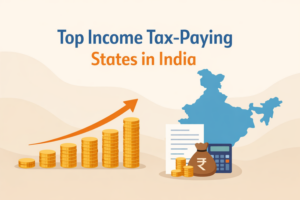Term insurance vs. life insurance: Understanding the differences

Insurance protects life and property against insurable risks. Term and life insurance are the two most common types. Term insurance provides protection for a defined period and if the policy owner dies during this period, a lump sum amount is paid to the nominee. It is often cheaper and ideal for anyone seeking comprehensive coverage at a lower cost. On the other hand, life insurance plans provide insurance cover along with a saving element which enables the policyholder to receive proceeds on expiry of the policy.
The basic factors that distinguish between life insurance and term insurance are the budget, financial needs, goals, and necessities. While a term insurance plan may suit those who require insurance coverage for a certain period at a relatively low cost, a life insurance policy is suitable for those who seek a long-term insurance policy with investment built in. Understanding term insurance vs. life insurance differences would help you choose the product that suits your requirements. Let’s dig in.
Understanding term insurance plans and life insurance plans
Term insurance and life insurance are essential components of an individual financial plan as they offer financial assistance to dependents if the insured person dies during the term of the plan. While life insurance protects life with potential for savings or investments, term insurance gives high coverage at a reasonable rate for a specific period. Being aware of the difference between term insurance and life insurance would enable you to make a sound selection.
Term Insurance Plan
Term insurance is the most basic and uncomplicated type of life insurance that provides financial support to the policyholder’s family if the policyholder dies while the policy is in place. However, no amount is payable if the insured survives the duration of the policy. You get a comprehensive life insurance policy at the lowest cost-premium, with a term insurance plan. The investor agrees to pay the insurance company premiums during the duration of the policy by purchasing a term plan.
Specifically, the term life insurance means insurance coverage is only valid for the term or policy period. The policy period can be shorter or even longer than 30 years depending on the age at which one invests in the plan. Finally, it is easier to understand the elements of a term plan if one has a basic understanding of what term insurance is. Protection means that term insurance is a simple life insurance policy with coverage that will ensure that financial stability of one’s family is protected for a long time.
Life Insurance Plan
The policy made between the policyholder and the insurer mandates that the policyholder pays premiums to the insurance company for a specified period, and in return, the insurer pays the nominee a lumpsum amount of money if the policyholder dies. You get full life insurance coverage from insurer through the coverage period.
Life insurance provides a one-time payment, usually referred to as the dealth benefit in the event of the policy holder’s death. Some life insurance policies provide you a maturity benefit amount when the policy term gets over.
For the life insurance policy to remain valid, the policyholder needs to pay either a one-time premium upfront or by way of yearly premiums throughout the term period. In other words, the benefits which people can receive from a life insurance policy are based on the premiums paid and thus one should select a premium that is affordable to pay.
One should look for the life insurance coverage offered, rather than the maturity benefit while choosing a life insurance plan. Thus, understanding the differences between term insurance vs. life insurance is important to ensure your family’s financial stability in your absence.
Difference between term insurance and life insurance
Though life insurance and term insurance are both types of life insurance, it is important to understand the differences between term plan vs. life insurance. As its name suggests, term insurance is a category of what can be considered pure risk cover that spans a specific period ranging from 10 to 40 years. The death benefit becomes payable to the nominee if the policyholder dies during the term. Nevertheless, no rewards are given out if the insured survives the term period. Because term insurance provides only death benefits and excludes any savings or investment component, it is typically less expensive.
Whole life insurance, also commonly referred to as life insurance, provides coverage for the lifetime of the policy. It pays out a lump sum to the beneficiaries upon the death of the policyholder. But it also has a savings aspect through which the policyholder gains monetary value with time. The costs of whole life insurance are higher than those offered in term insurance due to the lifetime maturity benefit. Term insurance is cheap and suitable for meeting pure insurance needs, but life insurance suits those people who require long-term coverage, with the added incentive of receiving maturity benefits on expiry of the policy.
Term insurance vs. life insurance: An overview
It becomes important to understand the difference between term insurance and life insurance to choose the right policy plan. The features listed below would help you compare term and life policies. Though some of these terms are often used synonymously, some crucial differences between the two need to be considered.
Coverage
Term insurance, as the name suggests, offers only protection. The nominee will receive a death benefit if the insured dies before the expiry of the policy period. However, it provides only risk protection with no saving component; there is no maturity benefit or a survivor benefit.
On the other hand, life insurance has elements of saving and security. In life, it provides the policyholder with a maturity reward if the policyholder survives till the end of the term, and in death, it pays the face value of the policy to the nominee during the policy period. Similar to whole-life or endowment plans, life insurance provides a maturity benefit.
Premium
Term insurance only insures the risk of mortality without an investment and thus the premiums are cheaper. This is especially true for those who are looking for long coverage without having to spend too much money.
The investing or savings component of life insurance policies leads to higher premiums. The cumulative monetary value that these insurance accrue adds to the overall policy premiums.
Coverage Duration
Term insurance provides coverage for a specified period and the duration can range between 10 and 40 years. The owner gets no cash back unless the policyholder dies during the term. If not, the policy just naturally ends at the end of the stated period.
Depending on the kind of policy, life insurance generally provides coverage for a longer period. The family of the insured is guaranteed financial stability as the policy payout includes death benefit as well as maturity benefit.
Bonus and Other Additions
Since term insurance does not have an investing component, it does not provide bonuses or any rewards over the sum assured. Bonuses, including reversionary bonuses or loyalty adds, are frequently offered by life insurance plans. These incentives increase the total payment amount at maturity.
Paid-up and Surrender
Unlike other plans, term plans do not have surrender or paid-up values and this means that if the premiums are not paid, the policy becomes invalid and there will be no more cover. Moreover, no compensation for the paid premiums would be provided. In some life insurance policies, even if the policyholder stops paying premiums, he or she will be guaranteed certain benefits.
Flexibility
Term insurance is not flexible since it does not include any investment or savings component; it only covers risk. But you can opt for riders such as non-payment of premiums in case you are diagnosed with a critical illness. Policies for life insurance also provide some kind of flexibility as it allows one to borrow against the policy and modify premiums.
You may also want to know the 4 types of insurance every 30 year old must have
Life Insurance
It is advisable for you to have life insurance before you turn thirty as you can avail cheaper premiums given your good health.
Health Benefits
It is important to have a health insurance policy to maintain your financial stabiltiy in the event of hospitalization that entails huge costs.
Accident Cover Insurance
You have two options here: buy an accident and disability insurance policy separately or by adding an accident and disability rider to your health insurance policy.
Vehicle Insurance
Remember to purchase the appropriate auto insurance coverage if you have just purchased your first two- or four-wheeler.
Conclusion
The choice ultimately comes down to whether your long-term financial planning or cost is more important to you. You should understand the distinctions between term insurance vs. life insurance. It is critical to consider your long-term commitments, family situation, and financial goals while deciding between term and life insurance. A cheap option for short-term insurance, term insurance provides financial security throughout important life phases such as debt repayment or providing for dependents. Nonetheless, life insurance offers lifetime coverage along with additional investment advantages, especially in the case of whole-life or endowment plans. Life insurance may be considered for wealth creation and investment, while term insurance is best for basic protection. However, experts strongly recommend that users keep insurance and investment separate. Over to you, readers.
Disclaimer
The stocks mentioned in this article are not recommendations. Please conduct your own research and due diligence before investing. Investment in securities market are subject to market risks, read all the related documents carefully before investing. Please read the Risk Disclosure documents carefully before investing in Equity Shares, Derivatives, Mutual fund, and/or other instruments traded on the Stock Exchanges. As investments are subject to market risks and price fluctuation risk, there is no assurance or guarantee that the investment objectives shall be achieved. Lemonn (Formerly known as NU Investors Technologies Pvt. Ltd) do not guarantee any assured returns on any investments. Past performance of securities/instruments is not indicative of their future performance.







